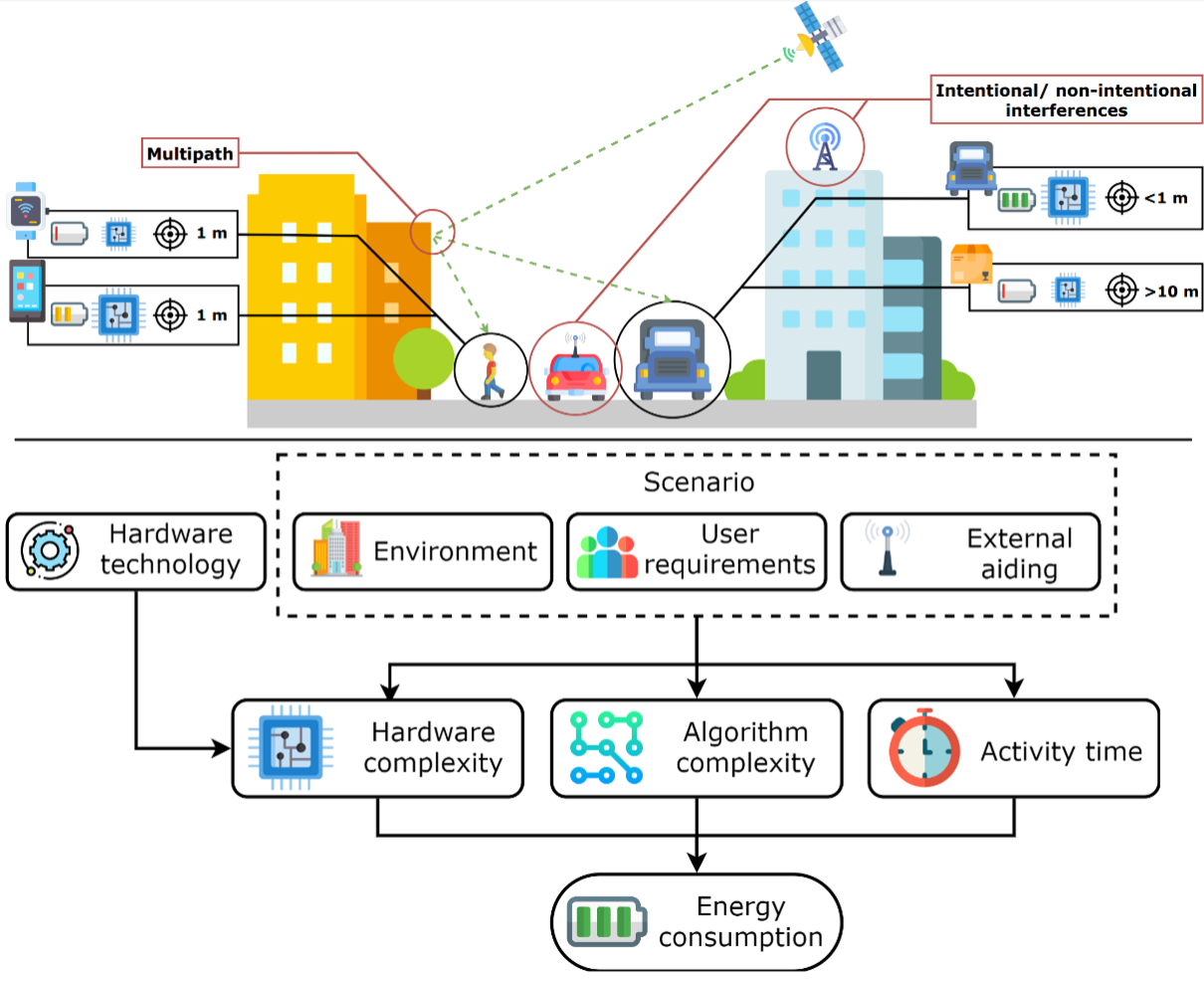With the miniaturization of electronics, Global Navigation Satellite System (GNSS) receivers are getting more and more embedded into devices with harsh energy constraints. This process has led to new signal processing challenges due to the limited processing power on battery-operated devices and to challenging wireless environments. The latter is typically tackled via new GNSS constellations and modernization of the GNSS signals. However, the increase in signal complexity leads to higher computation requirements to recover the signals; thus, the trade-off between precision and energy should be evaluated for each application.
In this context, the paper titled “A Survey on Low-Power GNSS” by Antoine Grenier, Elena Simona Lohan, Aleksandr Ometov and Jari Nurmi, dives into dives into low-power GNSS, focusing on the energy consumption of satellite-based positioning receivers used in battery-operated consumer devices and Internet-of-Things (IoT) sensors. We briefly overview the GNSS basics and the differences between legacy and modernized signals. Factors dominating the energy consumption of GNSS receivers are then reviewed, with special attention given to the complexity of the processing algorithms. Onboard and offloaded (Cloud/Edge) processing strategies are explored and compared. Finally, we highlight the current challenges of today’s research in low-power GNSS.

Zenodo link: https://zenodo.org/record/7820775

